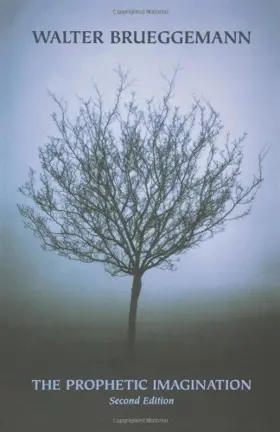

The Prophetic Imagination, 2nd Edition
Pages
176
Publisher
Fortress Press
Published
2001
ISBN-13
9780800632878
In this challenging and enlightening treatment, Brueggemann traces the lines from the radical vision of Moses to the solidification of royal power in Solomon to the prophetic critique of that power with a new vision of freedom in the prophets. Here he traces the broad sweep from Exodus to Kings to Jeremiah to Jesus. He highlights that the prophetic vision not only embraces the pain of the people but creates an energy and amazement based on the new thing that God is doing. In this new edition, Brueggemann has completely revised the text, updated the notes, and added a new preface.
Contents
--Preface
--The Alternative Community of Moses
--The Royal Consciousness: Countering the Counter-Culture
--Prophetic Criticizing and the Embrace of Pain
--Prophetic Energizing and the Emergence of Amazement
--Criticism and Pathos in Jesus of Nazareth
--Energizing and Amazement in Jesus of Nazareth
--A Note on the Practice of Ministry
Reviews
First published in 1978, The Prophetic Imagination offered instruction and inspiration to members of the church community and served as a practical supplement to college and seminary courses on the biblical prophets. In the preface to this new edition, Walter Brueggemann explains that with this small book “I more-or-less found my own voice as a teacher in the church” (ix). And what a teacher he has become. But lest readers look to The Prophetic Imagination as a course textbook on the prophets, Brueggemann explains that “this book intends to serve the practice of the church” (xvi). Indeed, readers do well to remember that the book developed out of lectures presented to ministers of the United Church of Christ and Disciples of Christ (xxiii). It is as much a meditation on biblical prophecy for people today as it is an investigation of prophecy in ancient Israel. The premise of the book and the thread that unifies its elements is Brueggemann’s judgment that “the task of prophetic ministry is to nurture, nourish, and evoke a consciousness and perception alternative to the consciousness and perception of the dominant culture around us” (3). In general, Brueggemann explains that this involves a process of first criticizing and then energizing, with the goal of developing a consciousness alternative to what he terms the “royal consciousness.
[Full Review]
